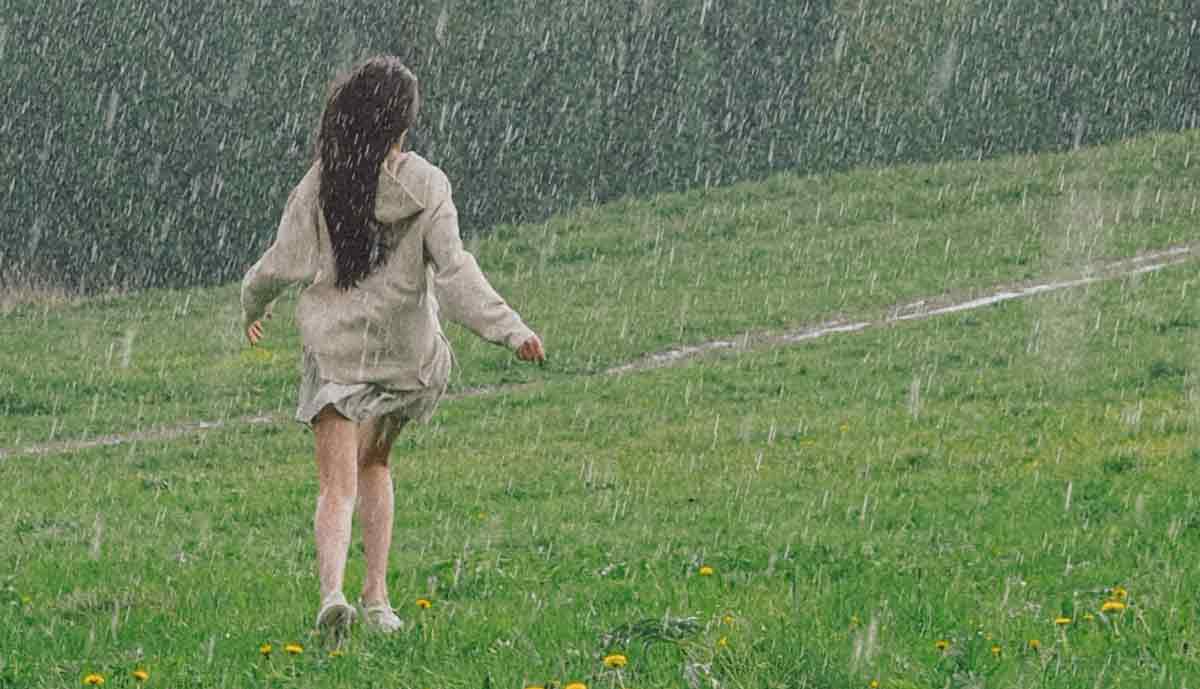
If you have children – or even if you don’t – you have undoubtedly heard criticism of those who take a rain shower with kids. Last month, a video posted on TikTok went viral on social media for simply exposing this topic, which remains an eternal dilemma among parents: after all, does taking a rain shower cause cold or flu?
+ Former evangelical OF muse boosts body for R$ 40,000 with online crowdfunding
+ Who is Magdalena Abakanowicz, the artist being honored by Google today?
+ Do you know what essential oils are and what they’re used for?
In the video, a couple has fun and plays in their backyard under the rain with a baby in their arms. In the captions, the mother leaves the following message: “No, getting rained on doesn’t cause a cold.
As it is a viral infection, only these pathogens, disease-causing microorganisms, can cause the condition. Let your child be happy and be happy with them. Create memories.” The video has been viewed over 1.6 million times and gathers over 1,500 comments, both from people supporting the initiative to play in the rain and from people criticizing it.
According to pediatrician Linus Pauling Fascina, medical manager of the Maternal-Child Department of the Albert Einstein Israeli Hospital, the mother, Ana Carolina, is right: taking a rain shower does not cause cold or flu. In practice, explains the doctor, these diseases do not differ, as they are the same viruses that cause local irritation and systemic effects, such as body pain, weakness, and malaise.
“Rain shower does not cause the flu. Neither does wind chill, nor ice cream. What causes the flu are various types of respiratory viruses that have in common sneezing, coughing, a runny nose and nasal congestion, as well as a sore throat. Cold, snow, cold water, and rain itself do not cause the flu, otherwise, people living in cold countries would always be sick and that doesn’t happen,” explained the pediatrician.
According to Fascina, this belief is ancient and misinformation exists because contact with temperatures lower than that of the human body triggers these reflexes of sneezing and coughing. But then, why does the nose usually run when there is exposure to these situations?
“In these cases, the nose runs as a reaction to the cold and not because of an infection. When we get rained on or go out in the cold our body reacts locally in the nasal mucosa causing vasoconstriction [decreased blood flow].
Thus, the local cells understand that they are more dehydrated and release mucus to protect against local heat loss and moisture, resulting in a runny nose,” explains Fascina. The same happens with the cough after exposure: it is nothing more than a reflex to try to keep the respiratory areas moist and warm.
Fascina stresses, however, that these reactions should only last the time of exposure to the cold or rain. “Upon returning to the appropriate thermal environment, this reaction decreases and tends to disappear quickly. When a person is repeatedly exposed, they may get the impression that it is something continuous,” he said. “If it coincides with a viral condition, it may seem that the rain was to blame.”
The pediatrician makes one more warning: the greatest risks of taking a rain shower are being hit by lightning (especially when in an open field), slipping in puddles and getting hurt, getting contaminated because of dirty sewage water, among other things.

